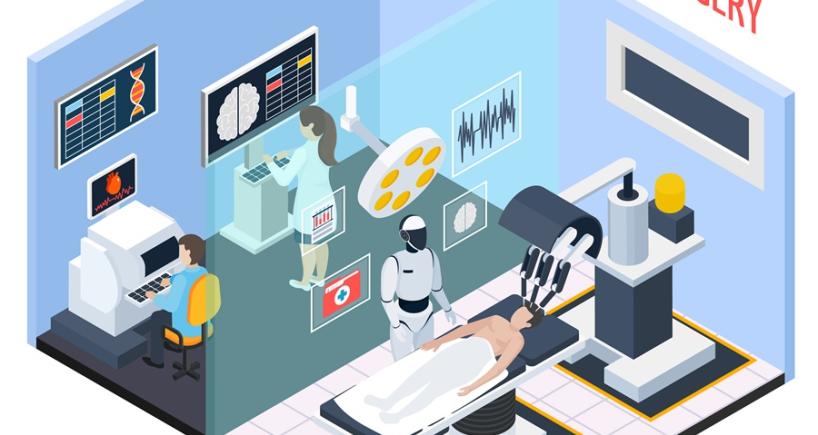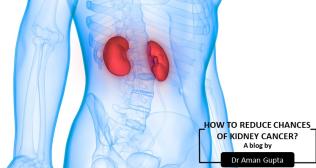
Transforming Healthcare: The Role of Robotic Surgery
Introduction
In recent years, the field of surgery has witnessed a remarkable transformation with the introduction of robotic-assisted procedures. Robotic surgery, also known as robot-assisted surgery, utilizes advanced technology to enhance surgical precision, improve patient outcomes, and minimize recovery times. This groundbreaking approach has revolutionized various specialties within the medical field, including general surgery, oncology, and gastroenterology.
Robotic General Surgery: Redefining Precision and Safety
Robotic technology has brought significant advancements to the field of general surgery, offering surgeons unparalleled precision and control during complex procedures. With robotic-assisted systems such as the da Vinci Surgical System, surgeons can perform a wide range of minimally invasive surgeries with enhanced dexterity and visualization. From hernia repairs and gallbladder removals to colorectal surgeries and bariatric procedures, robotic general surgery has become synonymous with improved patient outcomes and faster recovery times. By minimizing trauma to surrounding tissues and organs, patients experience reduced pain, shorter hospital stays, and quicker return to normal activities.
Robotic Oncology: Pioneering Innovations in Cancer Treatment
In the realm of oncology, robotic surgery has emerged as a game-changer in the fight against cancer. With its precise instrumentation and 3D imaging capabilities, robotic-assisted surgery enables oncologists to perform intricate procedures with unmatched accuracy. Whether treating prostate cancer, gynecological cancers, or head and neck tumors, robotic oncology offers patients a less invasive alternative to traditional surgery. By accessing hard-to-reach areas with greater ease and precision, surgeons can effectively remove tumors while preserving healthy surrounding tissue. This approach translates to reduced postoperative complications, improved cancer control, and better quality of life for cancer survivors.
Robotic Gastroenterology: Advancing Treatment for Digestive Disorders
Gastrointestinal conditions such as acid reflux, hiatal hernias, and colorectal diseases often require surgical intervention for effective treatment. Robotic-assisted surgery has revolutionized the field of gastroenterology by offering minimally invasive options for these conditions. With robotic platforms like the da Vinci Surgical System, gastroenterologists can perform complex procedures such as fundoplication, hernia repairs, and bowel resections with enhanced precision and maneuverability. By operating through small incisions and utilizing advanced imaging technology, robotic gastroenterology procedures result in less scarring, reduced pain, and faster recovery compared to traditional open surgery. Patients can expect shorter hospital stays and quicker return to normal digestive function, ultimately improving their overall quality of life.
Indications of Robotics in Gynaecology:
1) Endometriosis As we all know, Endometriosis is a Pandora's box with disproportionate symptoms to the pathology. The Robot's dexterity aids in performing complex dissections especially in advanced endometriosis with ureteral and bowel involvement. The magnification helps in giving complete clearance with minimal collateral damage and maximum fertility preservation.
2. Prolapse surgeries for surgeries involving mesh fixations such as sacro-colpo/hysteropexies, pecto-hystero/colpo pexies, the depth of access given with the robotic technology is of significant advantage. This coupled with the ease of suturing conferred by the dexterity of the system significantly shortens intra operative times with superior outcomes.
3. Genitourinary Fistulas Robotic system confers great advantage here, aiding with extensive adhesiolysis, accurate identification of fistulas with precise repair.
4. NE vaginoplasties Advanced surgeries involving bowel anastomosis (ileal loop/sigmoid) with vaginal plate as needed for Mullerian anomalies are significantly enabled thanks to robotic system.
5. Hysterectomy (benign) The pain reduction with absence of shearing effect coupled with shorter operating time and minimal blood loss greatly reduces post-operative morbidity making day care hysterectomies feasible.
Conclusion: Embracing the Future of Surgical Innovation
As robotic technology continues to evolve, its impact on healthcare will only grow stronger. Robotic surgery has already revolutionized the way we approach complex surgical procedures, offering patients safer, more effective treatment options across various specialties. From general surgery and oncology to gastroenterology and beyond, the future of surgical innovation lies in the hands of robotic-assisted technology. By embracing these advancements, healthcare providers can usher in a new era of precision, safety, and patient-centered care.
6. Myomectomy The main advantage of reduced intra operative blood loss makes robotic a viable approach. The challenges faced with lack of tactile and force feedback can be overcome as the learning curve progresses, coupled with standardisation of team protocols.
7. Tubal Recanalization We can deliver highly precise outcomes in this extremely delicate surgery with Robot.
8. Radical/Modified Radical hysterectomy The ability to reach the lateral pelvic wall with ease coupled with the other advantages as mentioned above helps in giving maximum oncological clearance while at the same time, adhering to principles of cancer surgery.
Popular Searches :
Hospitals: Cancer Hospital in Delhi | Best Heart Hospital in Delhi | Hospital in Amritsar | Hospital in Ludhiana | Hospitals in Mohali | Hospital in Faridabad | Hospitals in Gurgaon | Best Hospital in Jaipur | Hospitals in Greater Noida | Hospitals in Noida | Best Kidney Hospital in Kolkata | Best Hospital in Kolkata | Hospitals in Rajajinagar Bangalore | Hospitals in Richmond Road Bangalore | Hospitals in Nagarbhavi Bangalore | Hospital in Kalyan West | Hospitals in Mulund | Best Hospital in India | | Cardiology Hospital in India | Best Cancer Hospital in India | Best Cardiology Hospital in India | Best Oncology Hospital In India | Best Cancer Hospital in Delhi | Best Liver Transplant Hospital in India
Doctors: Dr. Rana Patir | Dr. Rajesh Benny | Dr. Rahul Bhargava | Dr. Jayant Arora | Dr. Anoop Misra | Dr. Manu Tiwari | Dr. Praveer Agarwal | Dr. Arup Ratan Dutta | Dr. Meenakshi Ahuja | Dr. Anoop Jhurani | Dr. Shivaji Basu | Dr. Subhash Jangid | Dr. Atul Mathur | Dr. Gurinder Bedi | Dr. Monika Wadhawan | Dr. Debasis Datta | Dr. Shrinivas Narayan | Dr. Praveen Gupta | Dr. Nitin Jha | Dr. Raghu Nagaraj | Dr. Ashok Seth | Dr. Sandeep Vaishya | Dr. Atul Mishra | Dr. Z S Meharwal | Dr. Ajay Bhalla | Dr. Atul Kumar Mittal | Dr. Arvind Kumar Khurana | Dr. Narayan Hulse | Dr. Samir Parikh | Dr. Amit Javed | Dr. Narayan Banerjee | Dr. Bimlesh Dhar Pandey | Dr. Arghya Chattopadhyay | Dr. G.R. Vijay Kumar | Dr Ashok Gupta | Dr. Gourdas Choudhuri | Dr. Sushrut Singh | Dr. N.C. Krishnamani | Dr. Atampreet Singh | Dr. Vivek Jawali | Dr. Sanjeev Gulati | Dr. Amite Pankaj Aggarwal | Dr. Ajay Kaul | Dr. Sunita Varma | Dr. Manoj Kumar Goel | Dr. R Muralidharan | Dr. Sushmita Roychowdhury | Dr. T.S. MAHANT | Dr. UDIPTA RAY | Dr. Aparna Jaswal | Dr. Ravul Jindal | Dr. Savyasachi Saxena | Dr. Ajay Kumar Kriplani | Dr. Nitesh Rohatgi | Dr. Anupam Jindal |
Specialties: Heart Lung Transplant | Orthopedic | Cardiology Interventional | Obstetrics & Gynaecology | Onco Radiation | Neurosurgery | Interventional Cardiology | Gastroenterologist in Jaipur | Neuro Physician | Gynecologist in Kolkata | Best Neurologist in India | Liver Transfer |
Categories
Clear allMeet the doctor

- Urology | Urology | Paediatric Urology | Uro-Oncology | Kidney Transplant | Robotic Surgery
- Organ Transplant | Kidney Transplant
-
26 Years
-
1650
 Available at 1 different locations
Available at 1 different locations




















